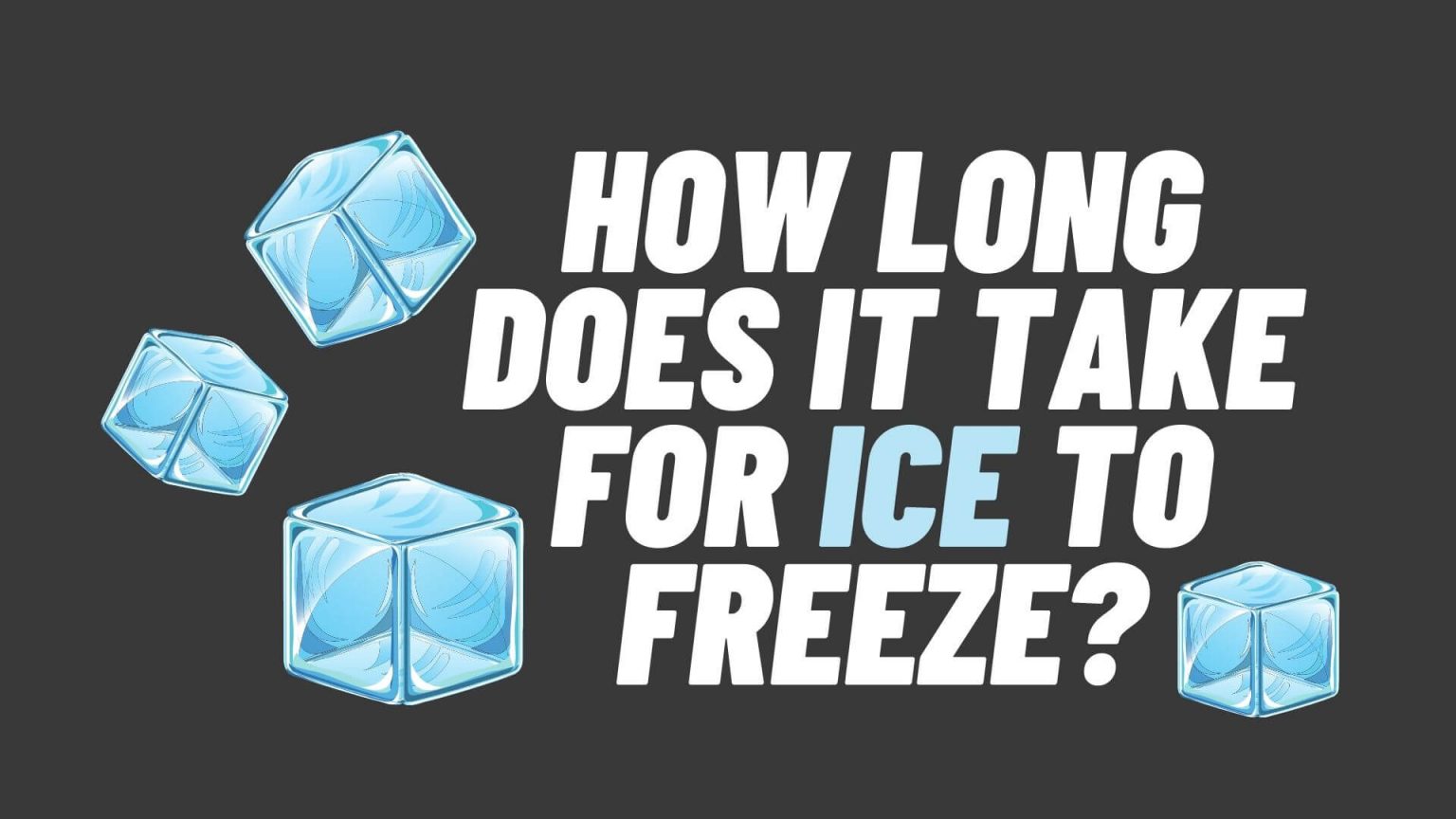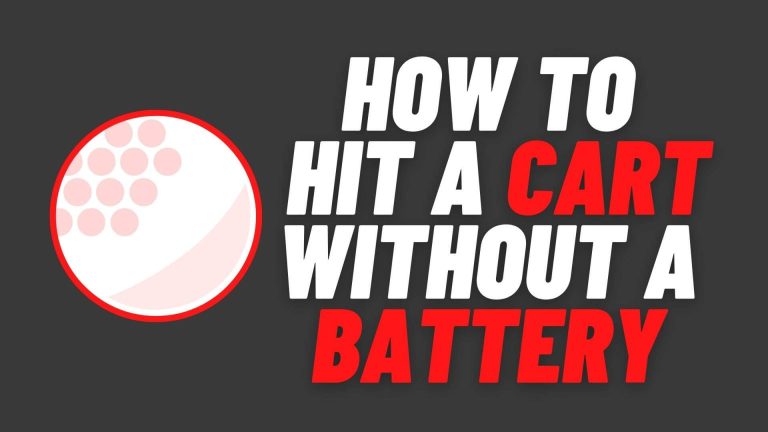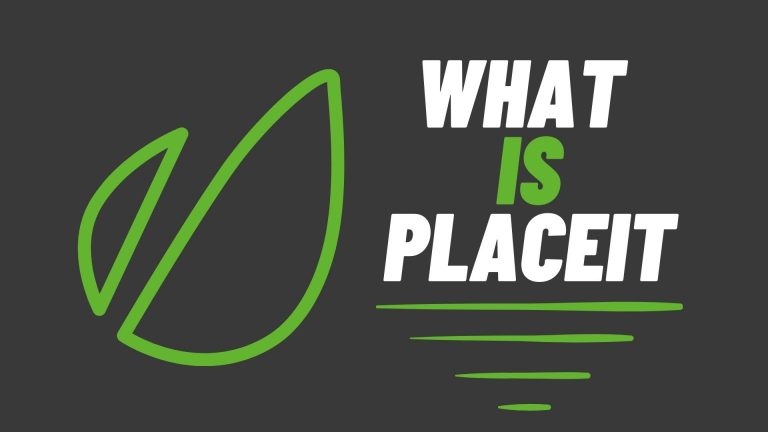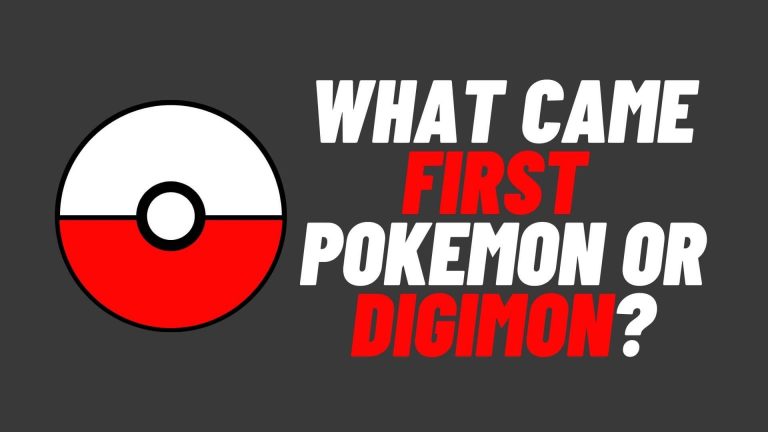How Long Does It Take For Ice To Freeze?
If you were looking for the query “how long does it take for ice to freeze” on Google or any other search engine then this article will tell you the answer to your searched query?
What is The Definition of Freezing?
Freezing is the process of changing from a liquid to a solid state. It occurs when the temperature of a liquid falls below 0 degrees Celsius, or 32 degrees Fahrenheit.
When ice freezes, it expands in volume by about 9%. This expansion can break up ice already on the surface, creating slush.
What are Some Examples of Freezing?
Water ices into solid ice when the temperature drops below 0 degrees Celsius (32 degrees Fahrenheit). Water also ices at higher temperatures when you add substances like salt. Water changes to steam, or water vapor, when the temperature gets high enough.
Butane is another example of freezing; butane turns from a liquid into a solid when the temperature drops below -138 degrees Celsius (-207.4 degrees Fahrenheit).
What is Ice and What Does It Do?
Ice is the solid form of water, and it occurs when temperatures are below 32 degrees Fahrenheit. When cooled down to this temperature, the molecules in the water begin to stick together in the form of crystals. The crystals eventually make ice.
Water becomes solid when it is cooled because its molecules move slow enough to stick together. This happens when the molecules in water are cooled to below their freezing point.
The type of material can affect how quickly ice freezes, but it shouldn’t make a difference in the time it takes for ice to freeze completely When water is frozen, its molecules move slower because they are further apart from each other.
This is why some materials will take longer to freeze because their atoms and molecules need more time and energy to move further apart. The material also needs a good surface area for the ice crystals to form.
Ice will start forming on lakes and ponds during the winter months when temperatures begin to drop below 32 degrees Fahrenheit If there is enough room around the edges of a body of water, such as a pond or lake, ice can start to form on the edges of the body of water. If there isn’t enough room around the edge of a body of water, ice may start to form closer towards the center.
- Ice is frozen water that covers rivers, lakes, and the ocean.
- Ice melts in warm weather causing water levels to rise.
- Ice also causes the coldness of the atmosphere.
- Ice can be dangerous if it is not monitored carefully because it may lead to people falling through said ice and becoming injured or even killed
Why is Ice Slippery?
Ice becomes slippery because of the pressure that builds up between solid surfaces and liquids, such as water or oil. When you have two solid surfaces – like a block of ice and a piece of glass – the molecules in contact with one another become charged.
These charges repel each other; they won’t bond closely to each other, which means that the ice block will slide easily over the glass.
How Long Does It Take For Ice To Freeze?
It takes about 4 hours for an average-sized lake to freeze over completely at 0 degrees Celsius (32 degrees Fahrenheit). At -5 degrees Celsius, ice will take only a few hours to form. Ice takes longer to freeze as the temperature drops lower and approaches -40 degrees Celsius (-40 degrees Fahrenheit).
However, it may take even longer for the ice to completely melt. In warmer waters, it may take as many as 40 days for a lake to completely thaw.
Ice will eventually freeze if water is cooled below 32 degrees Fahrenheit.
This can be a very slow process that could take several hours or overnight.
Sometimes pond owners must remove large chunks of ice with chainsaws to ensure their fish’s safety as well as their own safety.
Ice is made of frozen water molecules.
Water freezes when the temperature goes down and the molecules are slowing down enough to form a solid instead of remaining loose in liquid form.
The speed at which ice freezes can vary on things such as climate, whether or not it is windy, how clear the water is, etc.
Ice will eventually cause people to be cold because it reflects sunlight which is where all warmth comes from so ice blocks the sun’s warmth.
Why Does Water Become Solid When Cooled Below 32 Degrees Fahrenheit?
Water freezes at 32 degrees Fahrenheit.
This has to do with the hydrogen bonds in water.
Water molecules form very strong hydrogen bonds with each other.
These hydrogen bonds try to pull in as much heat energy from the atmosphere as possible.
This is why water freezes faster than most other liquids on earth.
The more time that passes, or the more ice that is added, the stronger the hydrogen bonds get.
Eventually, it becomes too cold for any more ice to form and all of the water molecules are bonded together in a solid block instead of different layers.
This process takes time because every molecule must move slower until enough have bonded together to prevent any more bonding from occurring.
How Does Adding a Layer of Ice Make New Layers Bond Faster?
The more layers of ice there are, the stronger the hydrogen bonds become.
The more ice there is, the less room than it is for other particles to attach themselves to a water molecule and form a hydrogen bond.
Adding a layer of ice causes all of the loose particles from previous layers to fall off so that they no longer inhibit hydrogen bonds from forming with the water molecules.
If there are more ice particles, then the concentration of hydrogen bonds rises proportionately.
As a result, there are fewer impurities to interfere with the process and inhibit bonding from occurring.
The more layers added, the stronger the bond becomes because there are fewer blockers in each atom’s path.
This creates a snowball effect where the more layers that are added, the smoother and stronger each layer becomes.
Plus, if ice is regularly added to a body of water then it will not form as many impurities because those particles will be pushed off by the next layer of ice.
This means there will be fewer hydrogen bonds between water molecules and other impurities.
Ice will freeze faster if a layer is regularly added because the concentration of water molecules that can bond with each other rises, making it easier for them to form links together.
In addition, ice won’t have as many impurities to deal with because they were pushed off with the most recent layer.
As a result, ice will freeze faster if it is regularly spread over a body of water because there are fewer impurities to inhibit hydrogen bonding processes from occurring.
Adding an extra layer of ice reduces the number of particles that can attach themselves to hydrogen atoms within each molecule and form bonds where the ice will form.
Does Salt Have an Effect on Ice Cubes?
The higher concentration of hydrogen bonds causes the saltwater to be denser and causes the water to have a higher freezing temperature.
Saltwater has more impurities than freshwater, meaning it is easier for the molecules to bond together because there are fewer other particles in its path.
Freshwater freezes faster than saltwater because the salt ions make it denser and thus give it a lower freezing point.
The lower concentrations of particles in freshwater make it easier for the molecules to bond together since there are fewer other particles in their path.
Freshwater is more likely to freeze than saltwater because it contains fewer salt ions and thus fewer ions to inhibit hydrogen bonding processes from occurring.
Saltwater will freeze faster than freshwater because it is more condensed and thus contains more hydrogen bonds per molecule.
The higher concentration of hydrogen bonds causes the saltwater to be denser and causes the water to have a higher freezing temperature.
Saltwater has more impurities than freshwater, meaning it is easier for the molecules to bond together because there are fewer other particles in its path.
If salt is added to water, then ice cubes will freeze faster because there will be an increased concentration of salt ions which inhibit freeze water’s crystallization process.
The lower concentrations of particles in freshwater make it easier for the molecules to bond together since there are fewer other particles in their path.
Why is The Freezer So Important For Making Ice Cubes?
The freezer has a colder temperature which allows for the water to form more ice crystals.
Less heat is lost from the freezer because it doesn’t have as much ventilation as an open area does.
The freezer has a lower humidity which inhibits clouds from forming on top of your box of growing ice cubes and causing them to melt.
The freezer has a colder temperature which allows for the water to form more ice crystals.
How Long Does It Take For Ice To Freeze in a Freezer?
Ice cubes freeze more quickly if they are placed near the bottom of the freezer because salt ions make saltwater denser and give it a lower freezing point.
The temperature in a freezer is colder, making it easier for water particles to form ice crystals.
If you let the ice cube sit in saltwater, the more time it has to freeze, the denser it will become and sink to the bottom.
Ice cubes will freeze more quickly if they are frozen from all sides instead of once.
Freshwater is more likely to freeze than saltwater because it contains fewer salt ions and thus fewer ions to inhibit hydrogen bonding processes from occurring.
Freshwater will freeze more quickly than salt water because the salt ions make it denser and thus give it a lower freezing point.
If ice is placed in saltwater, then it will freeze faster because there will be an increased concentration of salt ions which inhibits water molecules’ crystallization process.
Ice cubes freeze more quickly if they are placed near the bottom of the freezer because salt ions make saltwater denser and give it a lower freezing point.
Ice cubes freeze more quickly if they are frozen from all sides instead of once.
The temperature in a freezer is colder, making it easier for water particles to form ice crystals.
Thank you for reading! If you have any queries about this article, leave a comment below.







